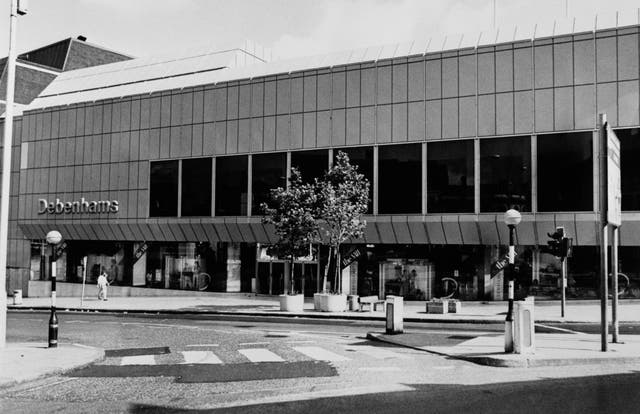
Debenhams has been a mainstay on UK high streets for 242 years, but is now set to shut its doors for good.
In 1778 William Clark opened a drapers store on 44 Wigmore Street in central London, selling expensive fabrics, bonnets, gloves and parasols.
The business had a modest start in life, with Mr Clark continuing to run the single store until meeting a potential investor.
William Debenham formed a partnership with the store owner in 1813, pumping funds into the business which then became Clark & Debenham.
Five years later it opened its first store outside the capital, in Cheltenham, and started to dramatically expand.
When Clement Freebody invested in the firm in 1851 it was renamed Debenham & Freebody, and continued to grow by snapping up smaller rivals and expanding its wholesale operations.

Acquisitions continued into the next century and in 1905 Debenhams Ltd was formed.
After the First World War ended, the retailer merged with Marshall & Snellgrove, and in 1920 purchased Knightsbridge retailer Harvey Nichols.
Seven years later the Debenham family exited the business as it was listed on the London Stock exchange.
By 1950, Debenhams was the largest department store group in the UK, owning 84 companies and 110 stores.
In 1985 Debenhams merged to become part of Burton Group, which soon rebranded as Arcadia, before splitting away 13 years later after a period of rapid store expansion and the launch of its first international franchise sites.
Following demerger from the Burton Group, Debenhams was listed on the London Stock Exchange until 2003, when it was acquired by Baroness Retail.
Baroness, backed by private equity firms CVC Capital Partners and Texas Pacific Group, started to strip the company’s assets, including a £450 million sale and leaseback of 26 properties and internal cost-cutting.
Three years later, Baroness almost tripled its value as it was floated on the stock market, but the retail group was now weighed down by a portfolio hamstrung with expensive rental agreements.
Nevertheless, Debenhams continued to grow, acquiring nine stores from Roches in the Republic of Ireland in 2007 and Magasin du Nord, the leading department store chain in Denmark, two years after.

In 2014, after a decline in company profits, retail tycoon Mike Ashley bought 4.6% of the company’s shares.
He steadily increased his ownership of the department store business, expanding it to 29.7% by 2018.
However, the business had now felt the full effect of difficult high street conditions and sky-high rents, resulting in a £491 million pre-tax loss in 2018.
By April of 2019, the retail giant entered administration and delisted from the stock market.
It undertook a major restructuring, designed to restore it to its former glory, but now appears likely to disappear for good after Christmas, after entering liquidation.


Comments: Our rules
We want our comments to be a lively and valuable part of our community - a place where readers can debate and engage with the most important local issues. The ability to comment on our stories is a privilege, not a right, however, and that privilege may be withdrawn if it is abused or misused.
Please report any comments that break our rules.
Read the rules here